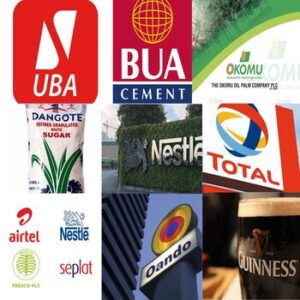The Nigerian Exchange is classified into four, each of which has different listing criteria and standards set by The Exchange. Issuers on NGX do not belong to the same group, but with the same purpose (raising capital).
An investor who is very familiar with the operations of the NGX will be able to say the “grade” of an issuer by its market classification.
The classification has been in use even before the Nigerian Stock Exchange (NSE) was officially demutualised on Wednesday, March 10, 2021.
By the Market Classification of Nigerian Exchange, the listing of companies and small scale businesses are able to penetrate the Nigerian capital market if they are able to meet listing requirements.
So…
Nigerian Exchange Market Classification
There are 134 companies on the main board; 8 issuers on the elite listing (premium board); 6 on the growth board while there 4 firms on the Alternative Securities Market (ASeM).
Altogether, there are 152 listed issuers on the Nigerian Exchange. Some of them have international standard requirements to meet, while some of them meet less stringent criteria.
Whether as a promising company or a big fish in the ocean in the stock market, only legitimate companies with impressive track records are listed on the NGX.
For instance, Dangote Cement is classified as one of the firms on the premium board listing because it’s able to meet stringent rules.
Premium Board
Also known as the elite group of issuers, the Premium Board is designed for companies that are industry leaders in their sectors. They must meet The Exchange’s most stringent corporate governance and standards competitive in the global market.
Through the standards, they are able to access a global pool of investors.
NGN200 billion is the minimum market capitalization requirement and achieve at least 70 per cent in NGX Corporate Governance Rating System (CGRS).
Growth Board
The Growth Board is designed for fast-growth SMEs and high-growth potential to access the capital market to raise capital and expand. To get on the growth board, your firm must be registered as a Public Liability Company.
Main Board
The Main Board is as old as the stock market in Nigeria. Issuers under this board must meet high standards of disclosure and corporate governance.
ASeM Board
Alternative Securities Market is designed for smaller and emerging businesses seeking to access the capital market.
Considering the vital economic contributions of the small and medium enterprises (SMEs) to Nigeria’s economy, ASeM board was launched in April 2013 by the Nigerian Stock Exchange (as it was called then).
They have the privilege to raise long-term capital from the capital market at a relatively low cost, allowing them to grow and expand to create more jobs.
NGX says emerging companies aspiring to be listed on the ASeM board have less stringent requirements to meet, such companies will need to meet the registration requirements of the NGX, must be incorporated with the Corporate Affairs Commission (CAC), must be certified by the Securities and Exchange Commission (SEC), before they can access the capital market for fresh capital.

